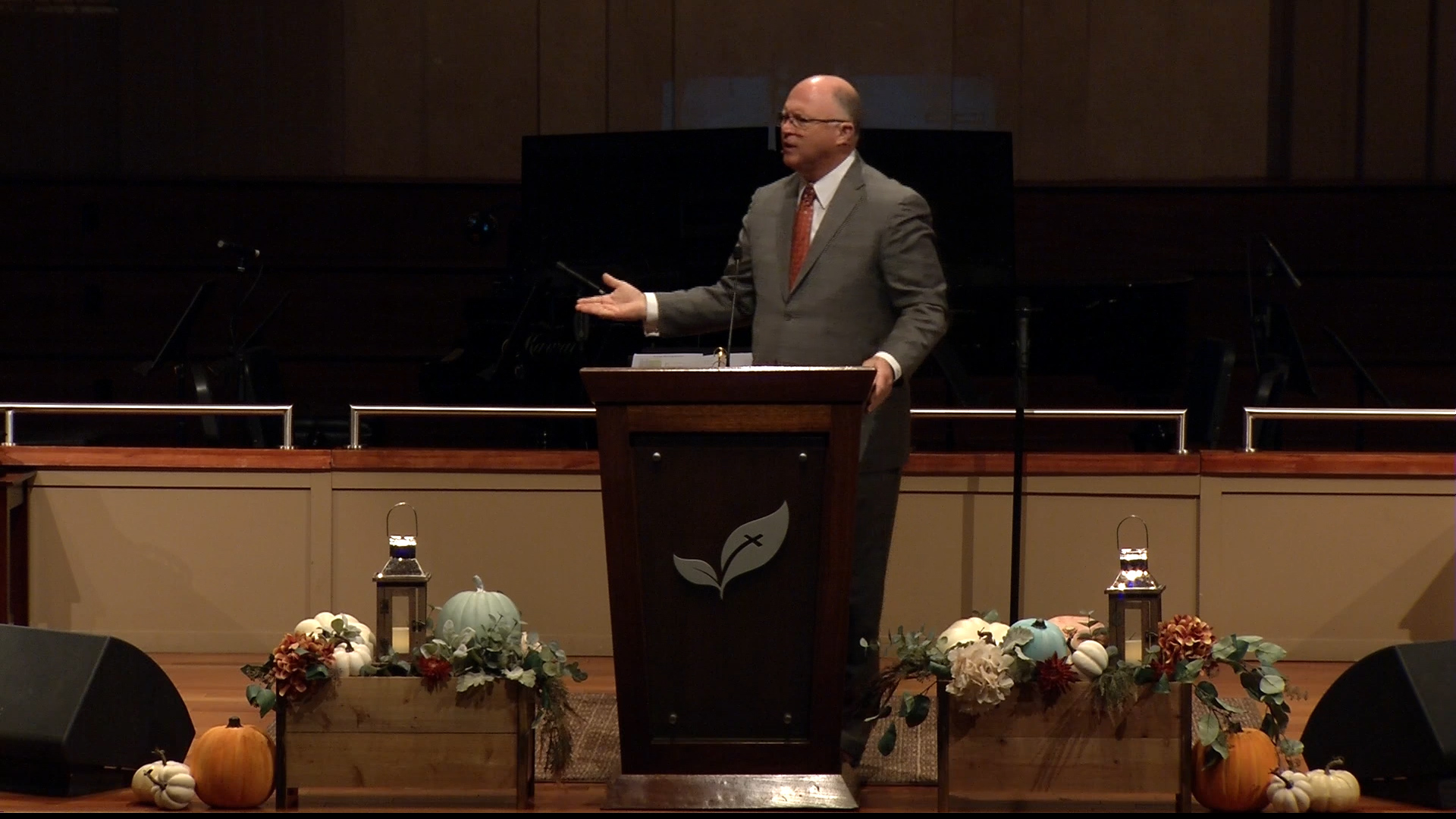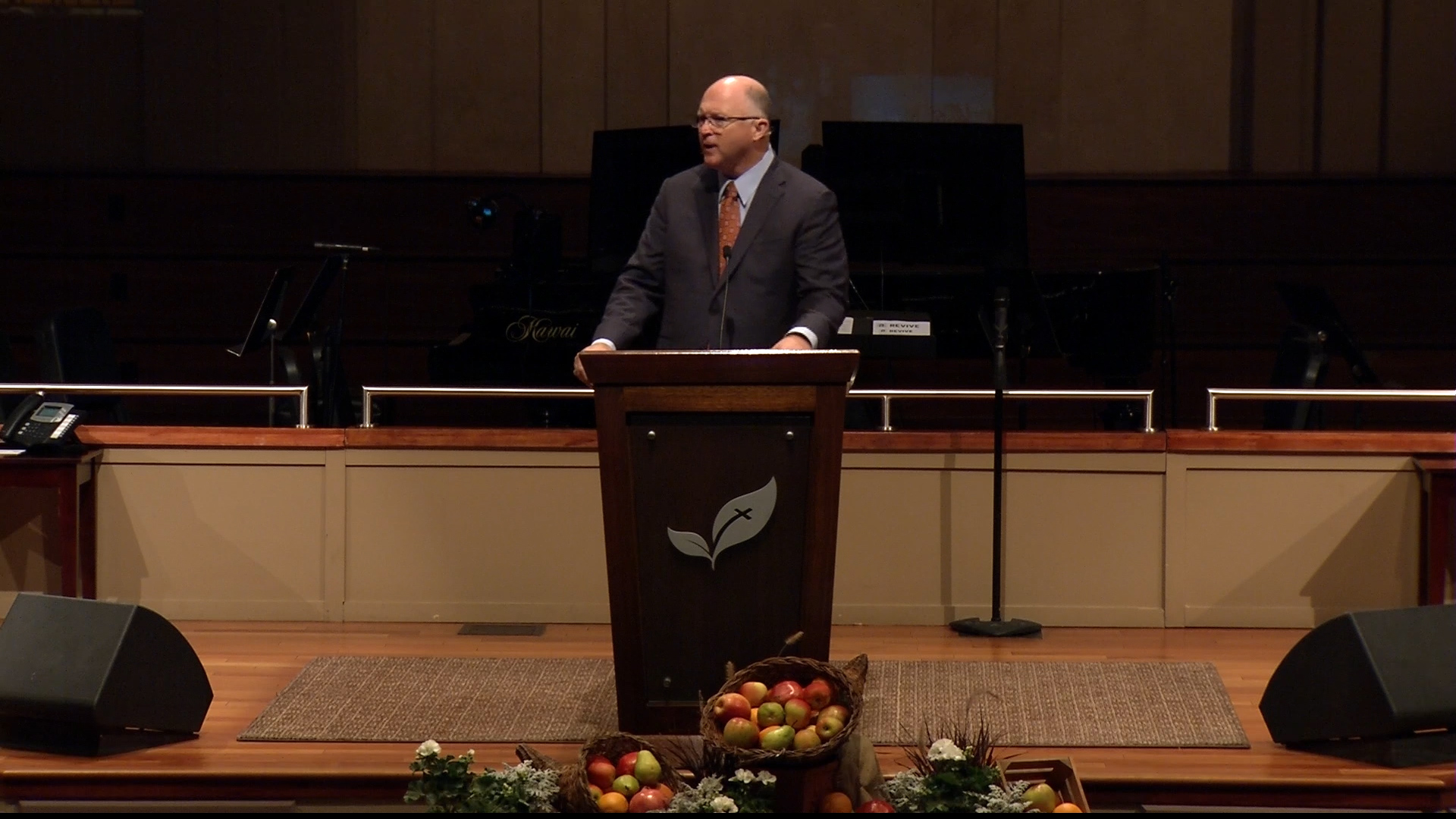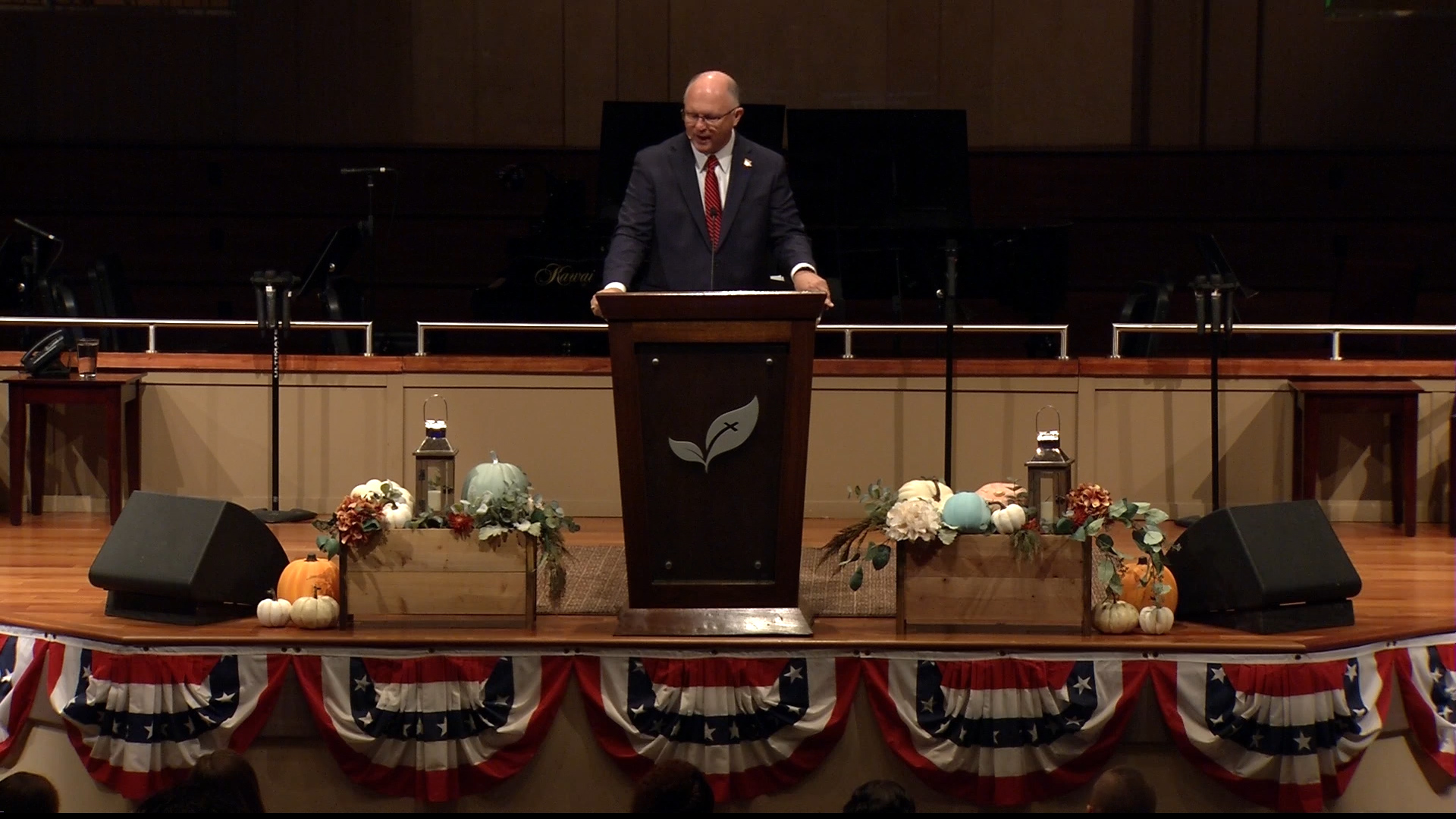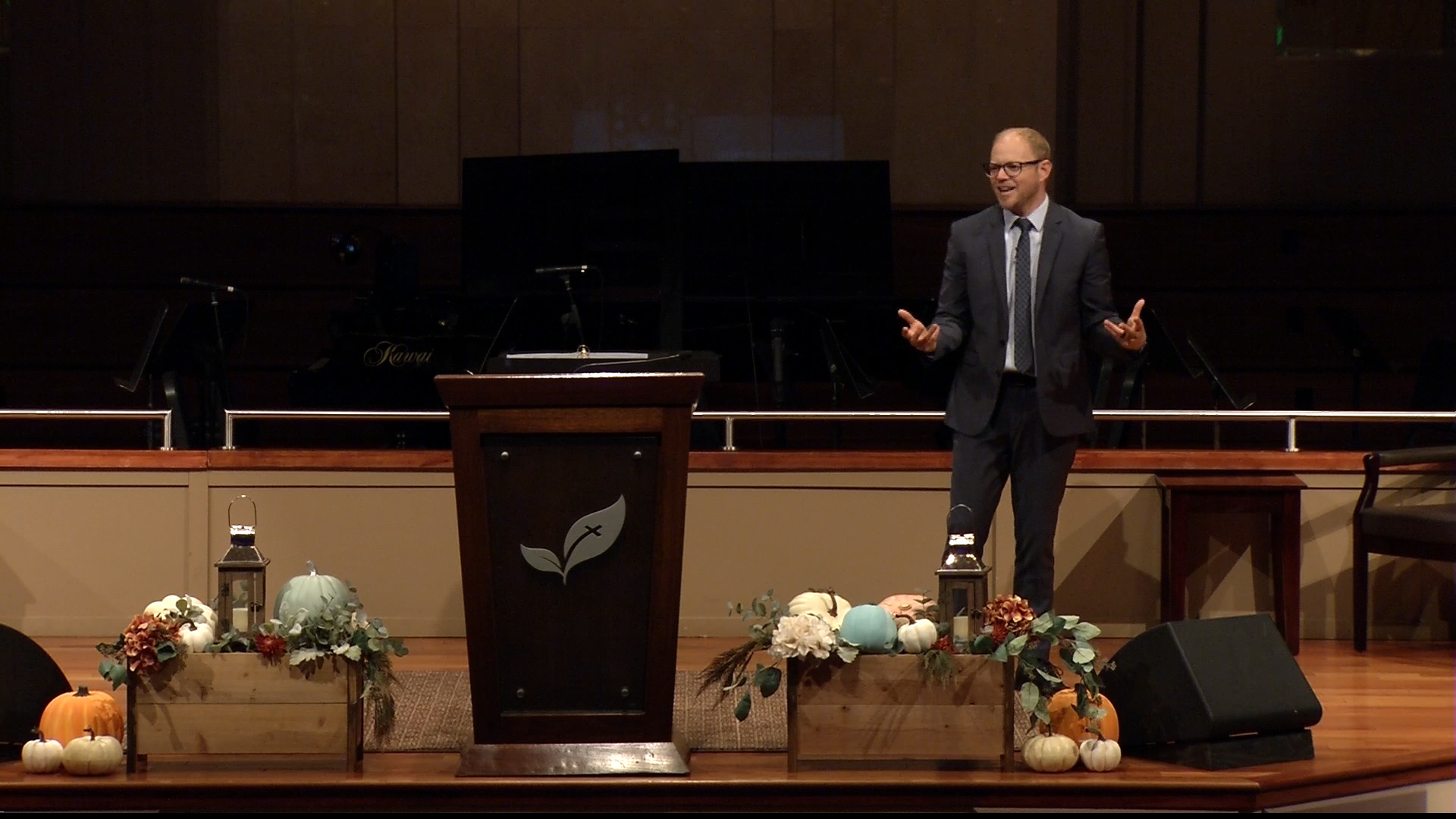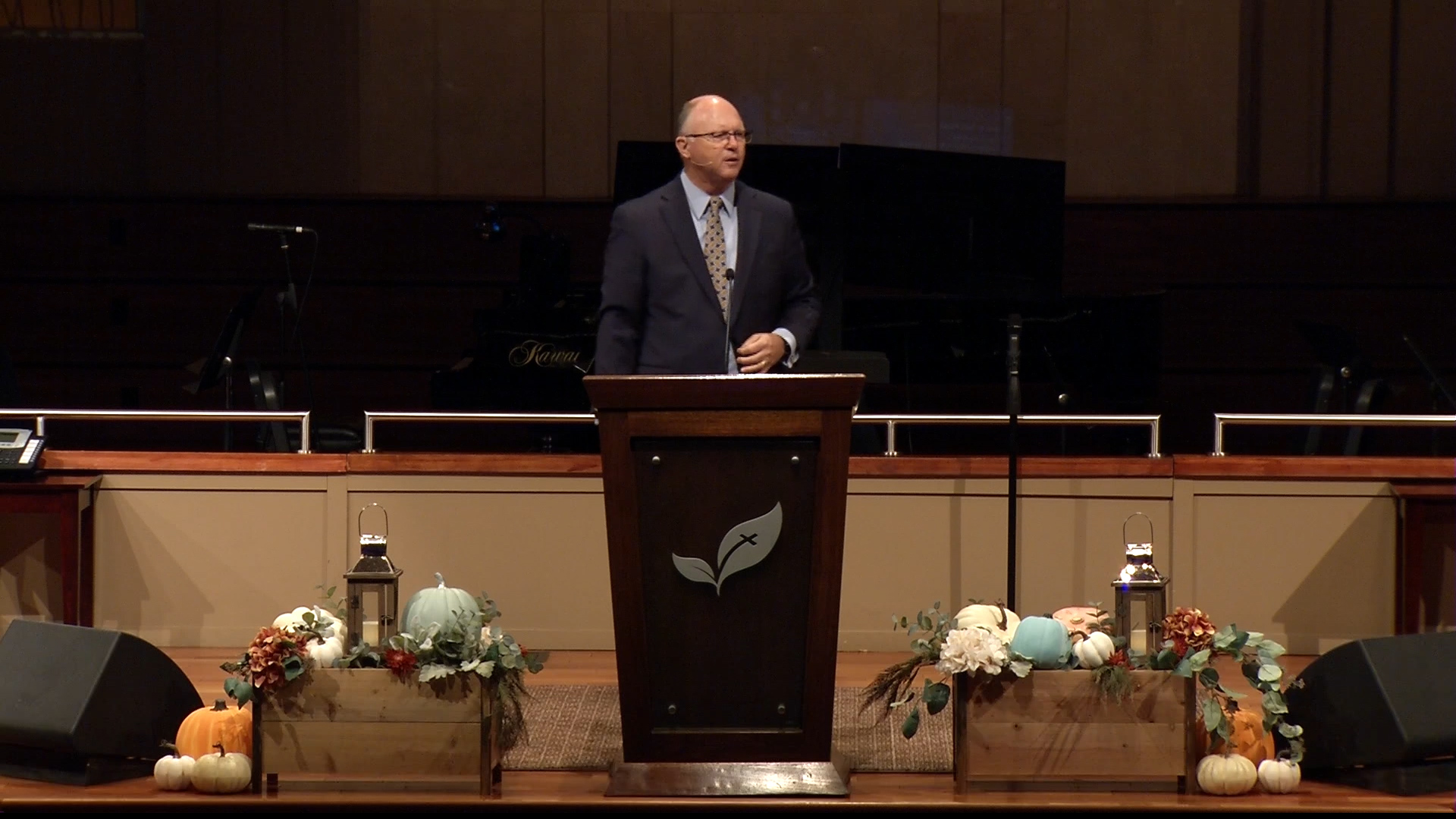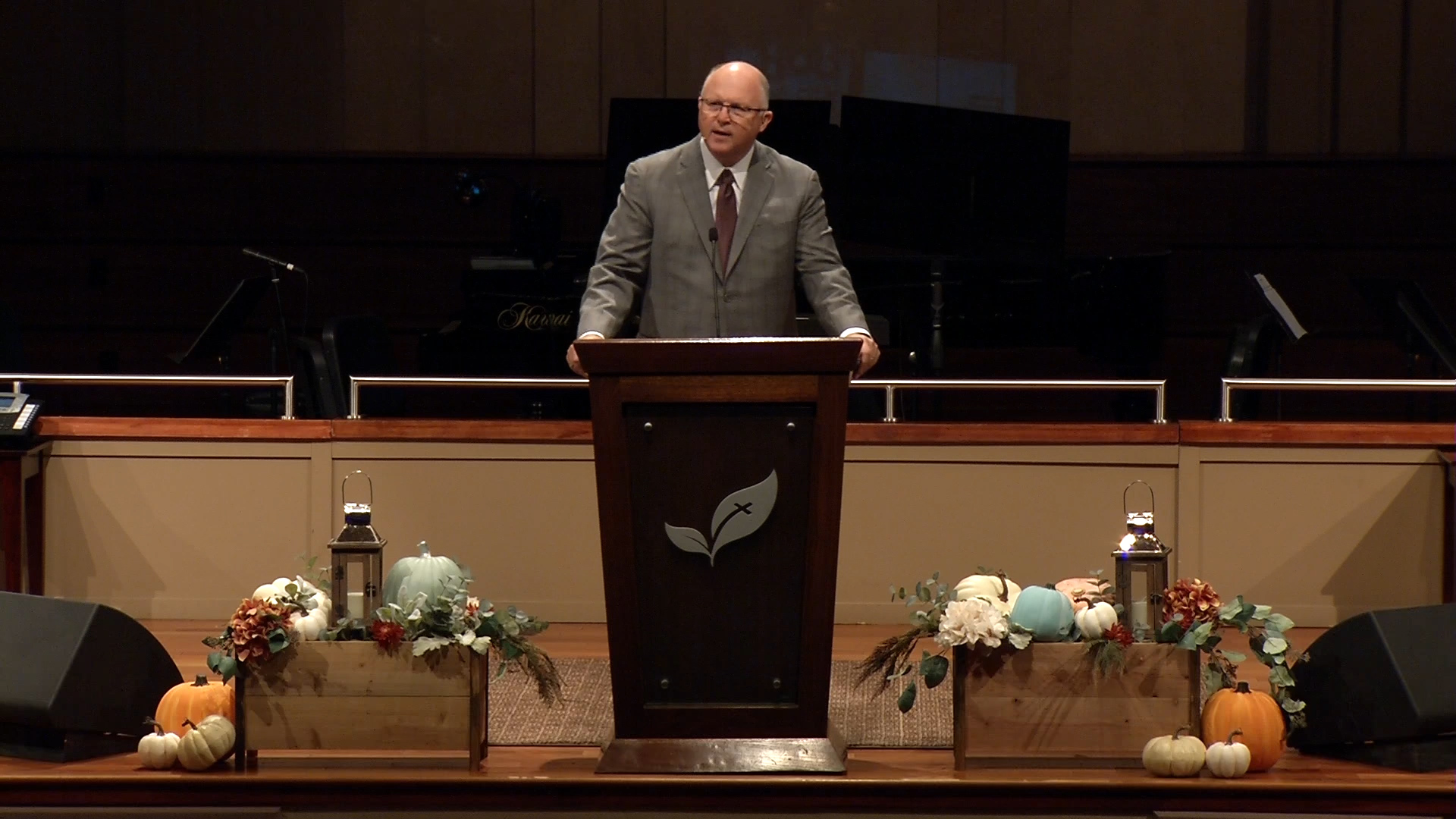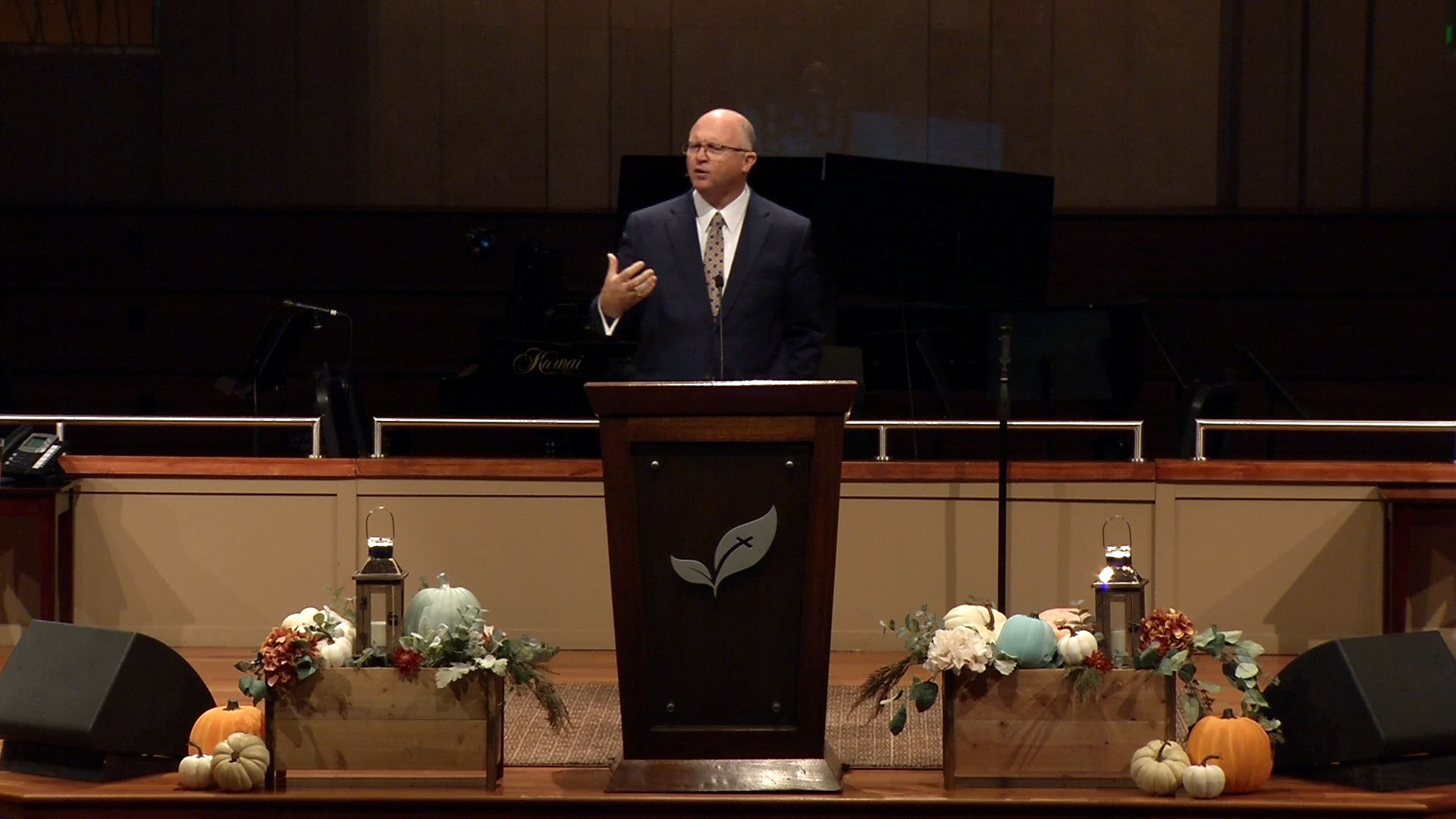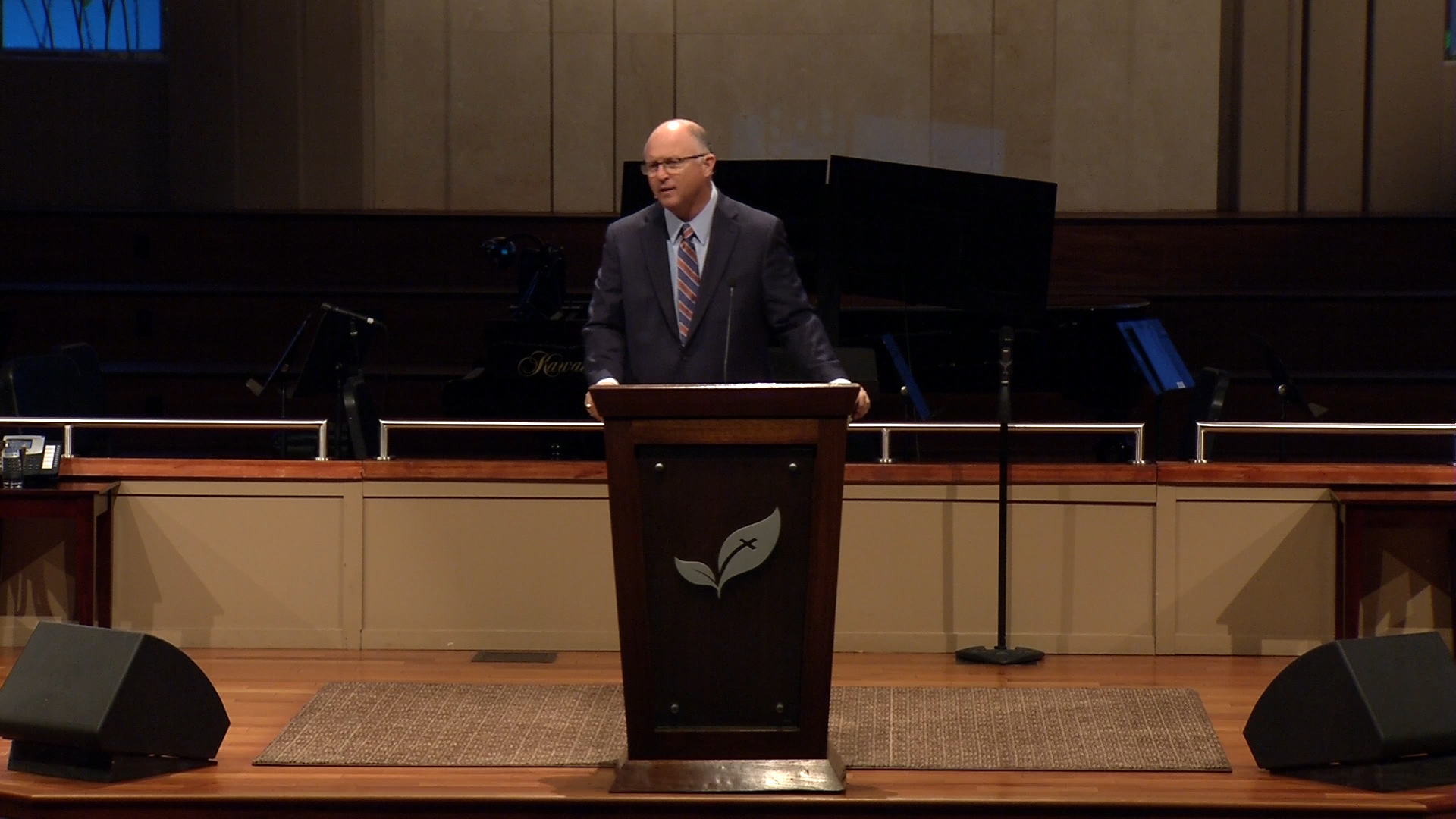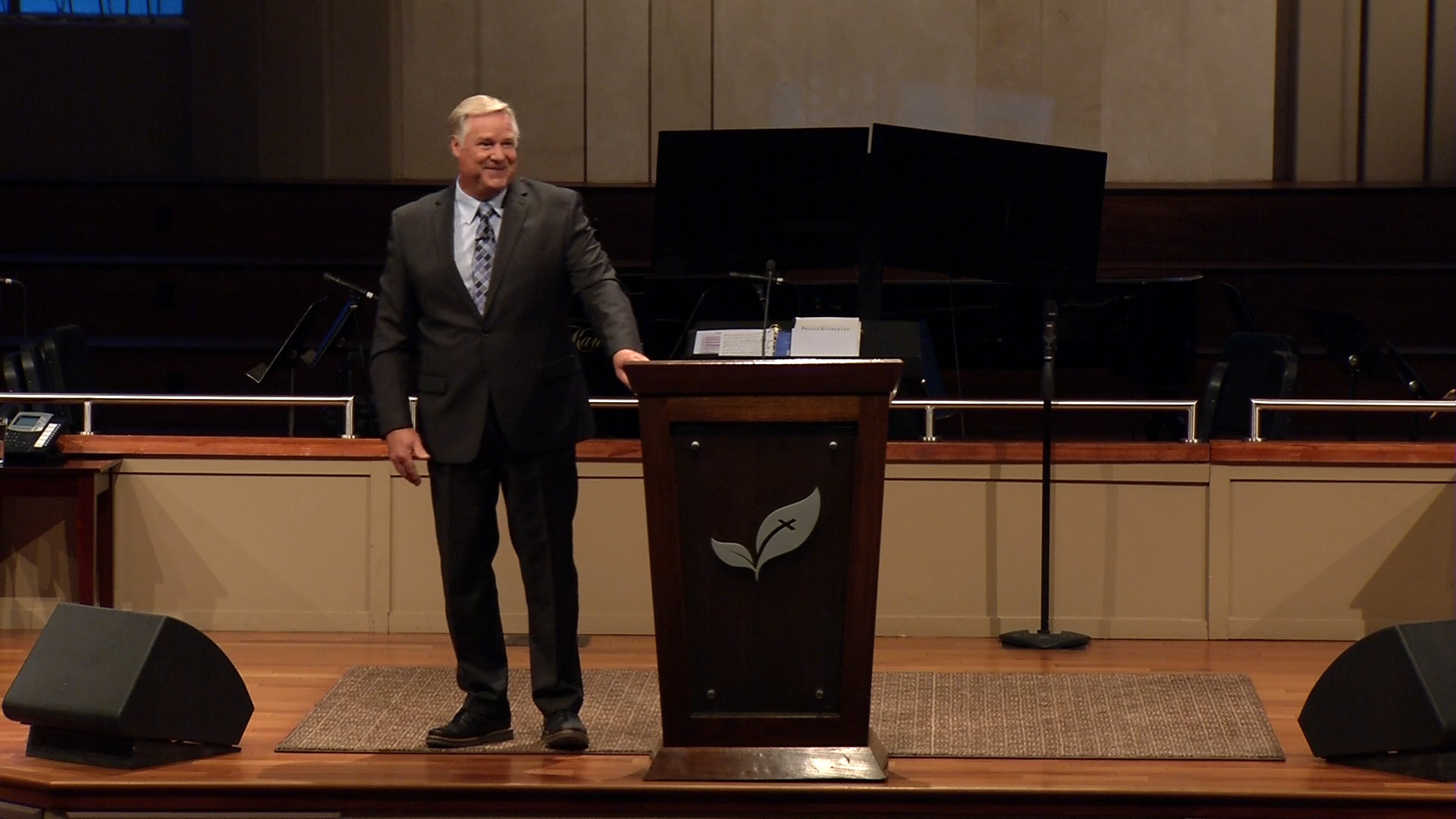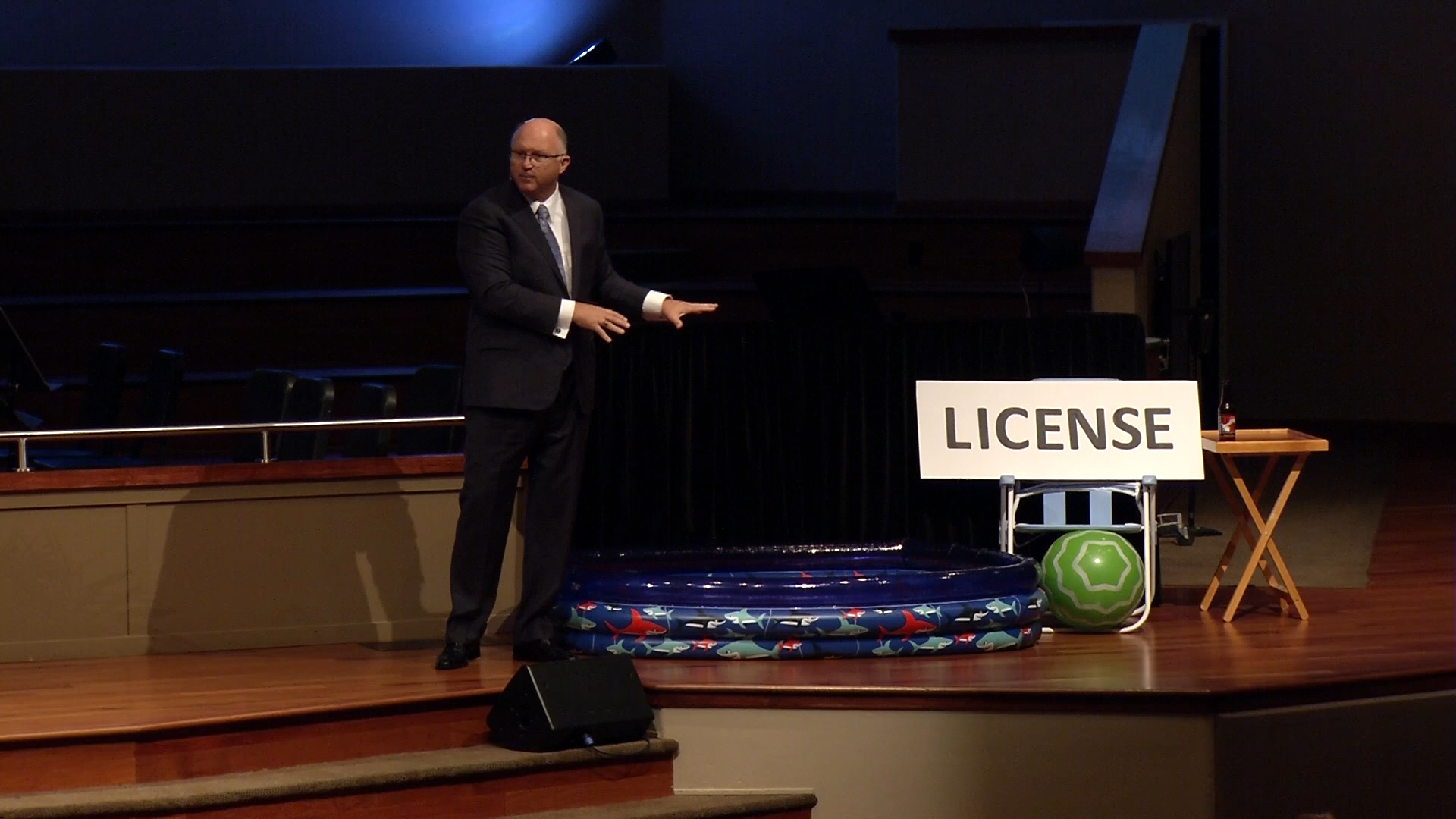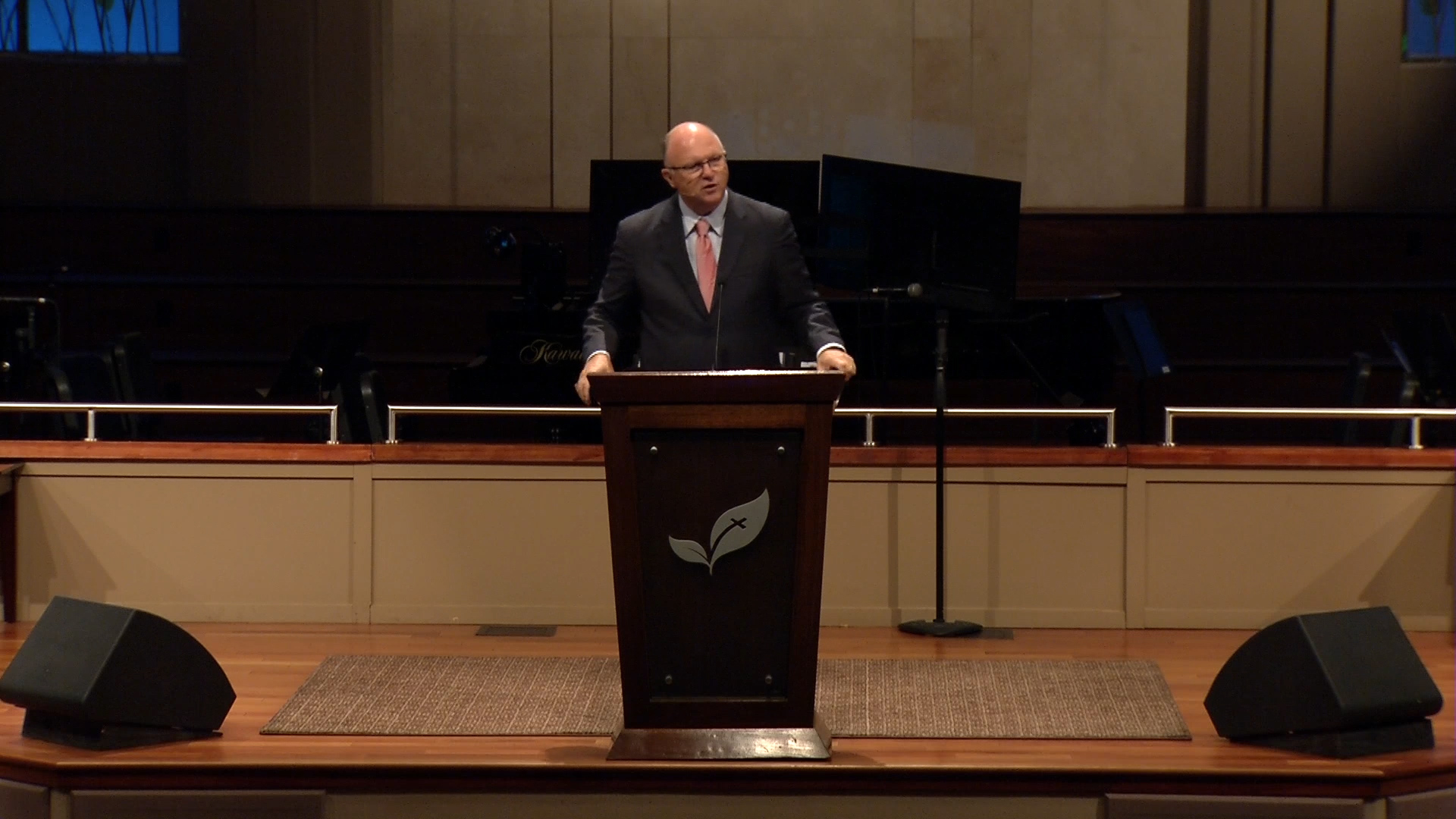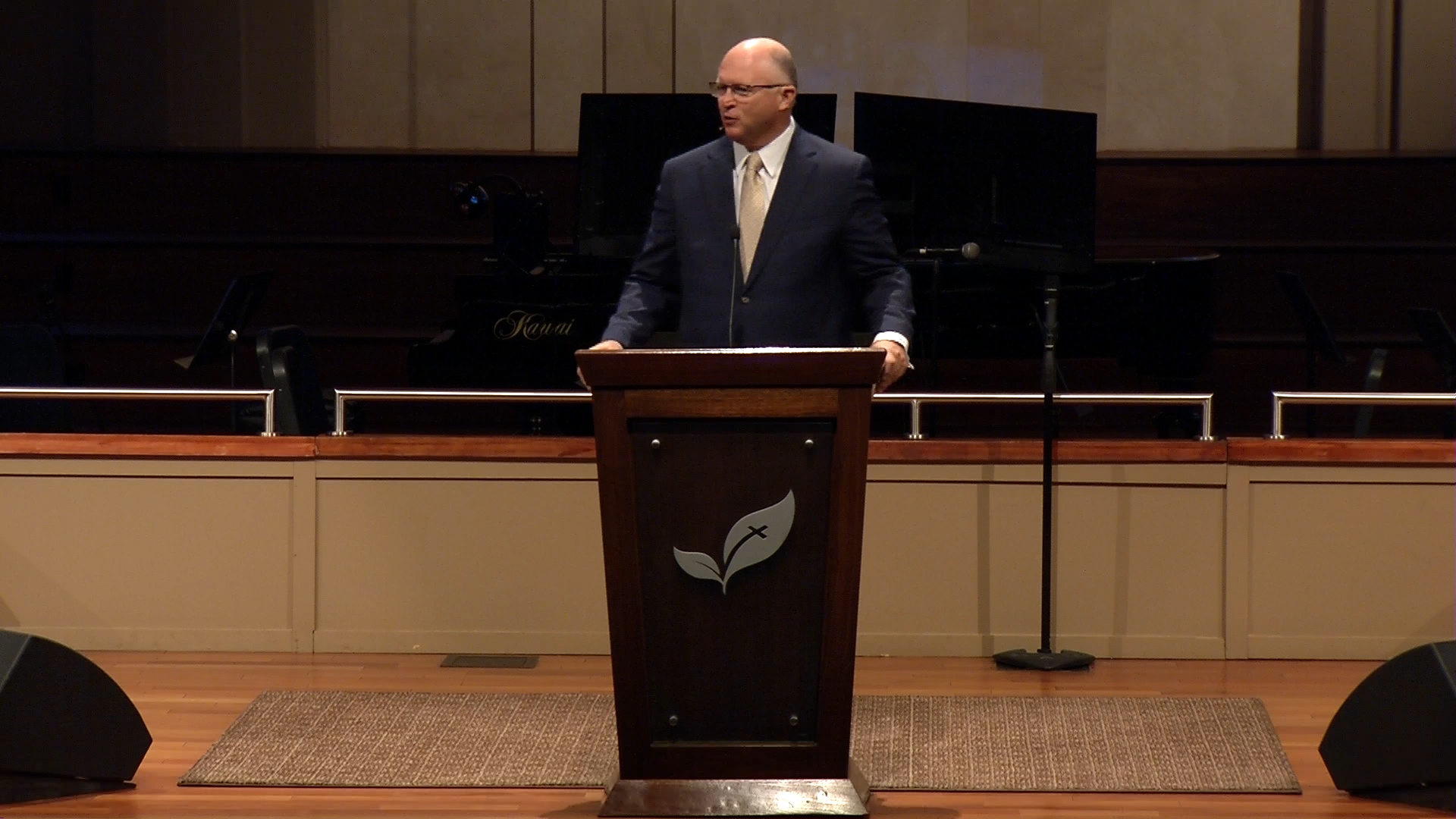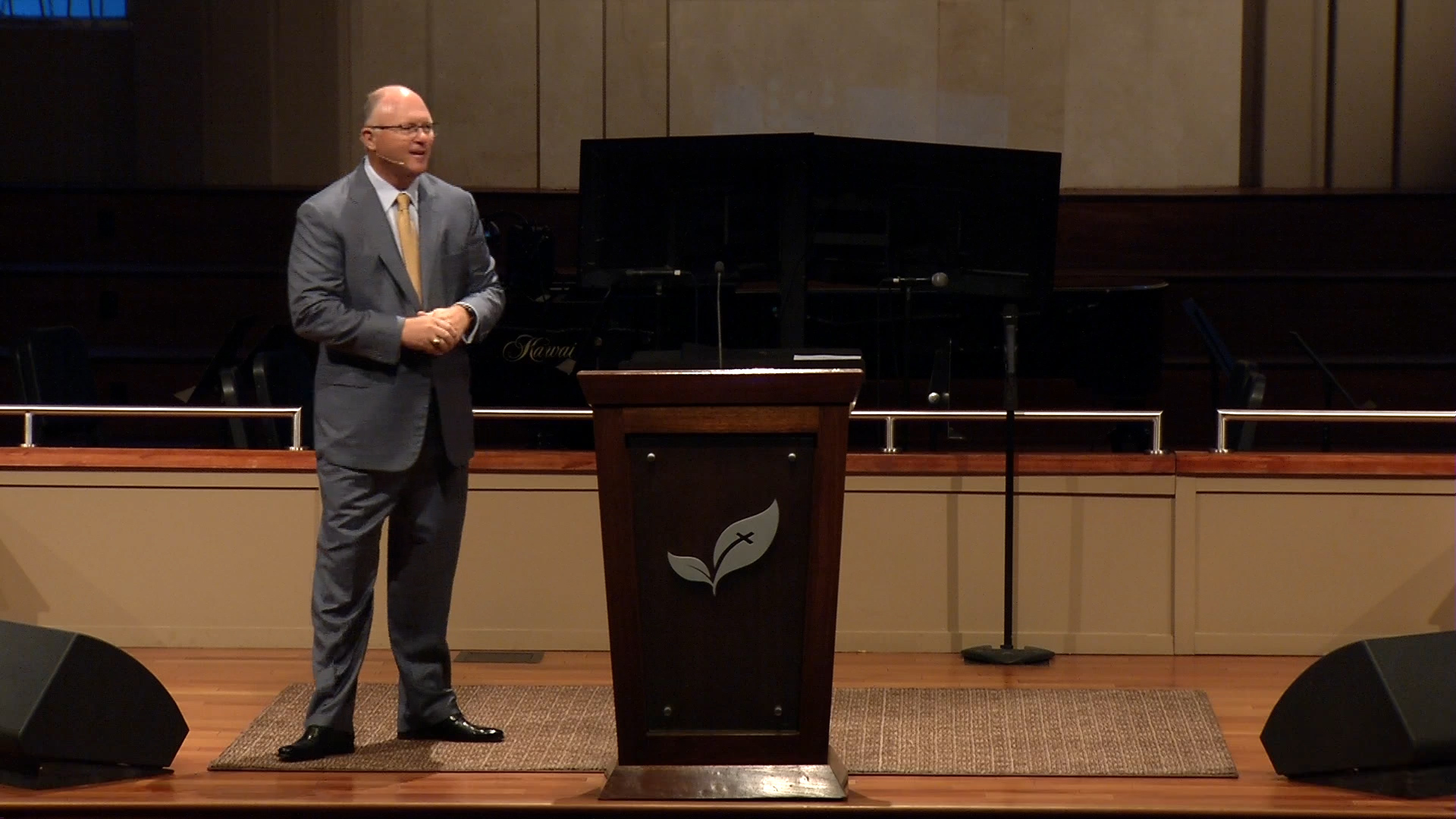Take your Bibles this morning and turn to the book of 1 Peter chapter 3, and we're going to read in just a moment beginning in verse 8, as we continue our series entitled "One Another: How Does God Want Us to Relate With One Another?" And today we're going to learn that his desire and will is that we would have compassion on one another. And so, let's turn there to 1 Peter chapter 3, and let's stand together, shall we, for the reading of God's Word. If you don't have a Bible, you can find the verses right inside your bulletin, there's an outline there, 1 Peter chapter 3, and we're going to read beginning in verse 8 for our text this morning: "Having Compassion on One Another."
How many of you would agree with me this world needs more compassion? Let me see. You understand that. And I'm excited about sharing this truth with you today. Follow with me, beginning in verse 8.
"Finally, be ye all of one mind, having compassion one of another, love as brethren, be pitiful, be courteous: not rendering evil for evil, or railing for railing: but contrariwise blessing; knowing that ye are thereunto called, that ye should inherit a blessing. For he that will love life, and see good days, let him refrain his tongue from evil, and his lips that they speak no guile: let him eschew evil, and do good; let him seek peace, and ensue it. For the eyes of the Lord are over the righteous, and his ears are open unto their prayers: but the face of the Lord is against them that do evil. And who is he that will harm you, if ye be followers of that which is good? But and if ye suffer for righteousness' sake, happy are ye: and be not afraid of their terror, neither be troubled; but sanctify the Lord God in your hearts: and be ready always to give an answer to every man that asketh you a reason of the hope that is in you with meekness and fear." Let's pray together, shall we?
Father, we thank you for the time that we've had to hear songs and to celebrate the arrival of new children. But now we open the Bible, Lord, and we need to hear from you. So we pray that you would speak to our hearts. I pray that you would help us to have more compassionate husbands, and wives, and church members, and coworkers; and teach us, Lord, how we might make a difference in this world through compassion, I pray in Jesus' name. Amen. You may be seated.
Well, this week we enter into a special week of thanksgiving, and this is a great time to remember the blessings of the Lord. The Bible says in Psalm 100:4, "Enter into his gates with thanksgiving, and into his courts with praise: be thankful unto him, and bless his name." And I believe that thanksgiving will help us in so many other areas of our lives. For example, it's hard to be thankful and covetous at the same time. If you're having a heart of gratitude, then you're not going to be filled with a heart of covetousness. And in addition, when we are thankful for the blessings of God, it is much easier to be compassionate on those that are less fortunate. If all we're doing is focusing on what we wish we had, then we're not going to see the needs of others the way that we should.
So thanksgivings leads us to have a more compassionate heart. And many times people today are so filled and bombarded with negative news; and whether it's fires, or shootings, or whether it's crime, or whether it's people at work that are just yapping at one another, it seems there's so much negativity, so much harshness, that we can turn a deaf ear towards people's needs and towards hearing and helping people in a time of need. It's as if, if it's not right at our doorstep, we're not really going to feel it. If it doesn't affect us, it doesn't really matter.
I think it was important that the President this week visited Northern California and saw the burned homes and heard from the devastated people. The Bible says, "Mine eye hath affected my heart." And sometimes we just don't see it like we should; and because there's much in the way of information today, we don't have the compassion the way we should.
I'd heard about a woman who was visiting some friends of hers on a farm, and she looked out in the back of the farm and she saw a pig. And the pig was hobbling along; it actually had a wooden leg. And she said to the farmer, "What happened to the pig?" and she said, "Oh," the farmer said, "Patsy's a wonderful pig. One night our house caught on fire, and it oinked and oinked and oinked until we all ran out of the house. And the firemen came and hosed out the fire, and the pig saved our lives." And the woman said, "That is amazing," and, "that's really something."
And the farmer continued, "That's not all. One day my youngest fell into the pond and the pig began to oink and oink until we heard, and we came out and we rescued her from the pond, and really just saved her life." And the lady said again, "That is amazing. But I still don't understand why the pig has a wooden leg." And the farmer said, "Well, when you have a pig that special you don't want to eat him all at once."
Now some people just kind of show gratitude in phases. You know what I mean? They're nice, but they keep you guessing. They're nice, but you're not really sure what they think about you. Now I want to speak to you this morning about not phase compassion, but true compassion. Someone has defined compassion as your hurt in my heart, your hurt in my heart.
The Bible tells us in verse 8, "Have compassion on one another." It means "to feel." It means "to see their need and to take the lead." It means "to suffer with them." It means "to identify with them." How many of you are thankful that Jesus had compassion on you and on me? He did not stay in heaven, but with a heart of love and compassion he came down to this earth to meet our need.
I was years ago asked to serve on the Board of Directors for Baptist International Missions. And at that time a very famous pastor, Dr. Lee Roberson was still alive and he was a board member as well. And we were dedicating a new facility that Dr. Sisk had helped to acquire. And Dr. Roberson made a suggestion at the meeting. He said, "I suggest that the road coming into the missionary headquarters be named Compassion Lane." And so, the road was changed to Compassion Lane; and there when you turn on Compassion Lane you go into the missionary headquarters for over a thousand missionaries.
And I truly believe that a missionary's heart is a heart of compassion. But I believe that God wants all of our hearts to be a heart of compassion. He wants all of us this morning to have compassion on one another. So I want you to notice in our outline as we begin this morning the realm of compassion, the realm of compassion.
Notice in verse 8, "Finally, be ye all of one mind, having compassion one of another." I want you to notice here, there is to be a unified mindset that it is God's will that the entire church have a mind of compassion. Have compassion one of another; be ye all of one mind.
Sometimes I see people in the Christian life and they sort of compartmentalize spiritual things. For example, one man said to me, "Well, I don't have the gift of gab; therefore, I can't be really a good witness for Jesus Christ." The problem with that is Jesus didn't say to go into all the world and preach the gospel if you have the gift of gab, he's just told his whole church to witness.
Sometimes people say, "Well, I don't have a lot of money, so I can't give." Jesus doesn't say, "When you get a lot of money, give." He wants all of us to give at whatever level we begin with. That is not the matter: he wants all of us to be involved.
And some people have even said to me, "I'm not the compassionate type." One guy said, "I'm an engineer, I don't feel like other people feel. I see everything very logically." But God says, "No, the realm of compassion is not just for those who feel real sensitive in their heart. The realm of compassion: everyone is to have compassion one on another." We're to be united in this sense.
Philippians 2:2, "Fulfil ye my joy, that ye be likeminded, having the same love, being of one accord, of one mind. Let nothing be done through strife or vainglory; but in lowliness of mind let each esteem other better than himself." Now God says, "I want all of you to have this mind. I want all of you to have the mindset of compassion. It's something that is to be felt and known in the church."
Years ago during World War II, in fact, ten days after the attack on Pearl Harbor, there was a city by the name of North Platte, Nebraska. And North Platte, Nebraska was a city that had a number of their young men. Some of their husbands were in something known as National Guard Company D. And so, it had been told to the citizens of North Platte that their young men were going to be coming through on the train and that they would be passing through North Platte, and so a lot of the moms made little care packages, and some of the wives made sandwiches and different things for the soldiers to come through. The only problem was, as they waited at the train station and as they watched for those that were coming through, it was not Company D, it was not the Nebraska National Guard, it was the Kansas National Guard.
And so, off the train stepped all of these soldiers that were unknown to the mothers and to the daughters, and here they were coming through North Platte, and the moms stood there kind of nervously because they didn't recognize the soldiers. And finally, one mom went up to a young soldier and she handed him a care basket with a sandwich and some food, and she thanked him for going to war and serving our country. In fact, after that woman handed her sandwich and such, all the other ladies began to give their items to the soldiers passing through as well. Soon the town organized a canteen, an organization that would allow everyone to create sandwiches and care packages for the soldiers coming through.
And in fact, for the next four-and-a-half years, the people of North Platte and surrounding communities, every day came to the train station with sandwiches, cookies, cold drinks, hot coffee, magazines, all kinds of gifts; and sometimes they served as many as 8,000 soldiers in a given day. And in fact, over the course of this particular time, over the course of this World War II until the last train arrived on April 1, 1946, there were six million soldiers who came through North Platte, Nebraska and received a care package from around 45,000 citizens who had gathered to encourage the troops. An amazing thought: one entire city given to a heart of compassion.
Bob Greene who wrote a book entitled Once Upon a Town speaking about North Platte and the canteen story, said that as he interviewed a few of the remaining soldiers that lived, men that had come through North Platte in the 1940s, he said, "When I asked these men to tell me their remembrance of North Platte, they all had the same response," he said. "All of them wept. All of them wept." Thinking back more than 50 years prior, those men when they heard and when they remembered the name North Platte and they recalled the kindness that someone showed to them at a difficult moment in their life, they wept as they remembered the love.
And I want to tell you, my friend, the Bible says in the book of Jude, "And of some have compassion, making a difference." Compassion still makes a difference in people's lives; and we must have a unified mindset. And I wonder what would happen if everyone that came to Lancaster Baptist Church, and if you were to ask them ten years later, "What took place in your life there?" if there wouldn't be a tear in the corner of the eye and they would say, "Somebody cared for me there. Somebody helped me there. Somebody counselled me there."
And what would happen if we had such a revival in Lancaster that men stopped drinking their boos, and stopped watching their porn, and stopped living in their sin? What would happen if men stopped living for self and started living for Jesus, and started having a compassionate heart, and so that people coming through Lancaster would say, "I felt the love of God in that city. I wasn't used and abused like other cities. But in that city, compassion made the difference"? I want you to understand, this is a mindset that God expects the church to live, and he wants all of us to have a mindset of compassion. It's a unified mindset, and it should be a loving mindset.
Notice the Bible says here in this passage also in verse 8, "Finally, be ye all of one mind, having compassion on one another, love as brethren, be pitiful, be courteous." God says, "I want you to have a loving heart one for another. I want you to be pitiful." And some of you say, "Well, that's one thing I can be; I'm pitiful." Well, that's not what it means, all right? The word "pitiful" here means "tenderhearted," tenderhearted.
You know, again it's easy to see all the news and hear about all the problems and just say, "Look, leave me alone, I'm going to take care of my own." But God says, "I want you to have a pitiful heart. I want you to have a heart that's concerned and that cares. I want you to be courteous and friendly." The realm of compassion. God says, "I want all of you to have this mindset of compassion. When someone comes along your way, how can you help them? What is it that you can do to be a blessing to them?" the mindset of compassion.
But notice, secondly, not only do we see the realm – that's all of God's people – but notice, secondly, the reach of compassion, the reach of compassion. Now notice this in verse 9, "Not rendering evil for evil, or railing for railing: but contrariwise blessing; knowing that ye are thereunto called, that ye should inherit a blessing."
Now I want you to see here, first of all, that we can reach out with compassion verbally. We can reach out verbally. The Bible tells us here in verse 9 that we are to give blessing, not rendering evil for evil; but we are contrariwise to give a blessing, to give positive words.
Now this is interesting. The Greek word here is eulogeó, from which we sometimes get the word "eulogy." Sometimes you'll go to a funeral and they'll say, "We'd like you to give the eulogy." What does that mean? They want you to give some words of blessing about the person that has gone on to eternity. They want you to share some eulogy, some blessing about that particular family or that particular person.
And God says, "I want your words to be a blessing. I want you to have compassion. And instead of always having the negative or the sarcastic, I want you to reach out verbally." Proverbs 25:11 says, "A word fitly spoken is like apples of gold in pictures of silver." How many times have we heard stories about someone that just had the right word at the right time, and it made the difference for someone? It caused them to keep on going on and to keep on striving.
George Truett was the pastor of the First Baptist Church of Dallas, Texas; a great pastor for many years. It was the largest church in America. His heart however was broken during a hunting trip when he accidently killed a dear friend on the hunting trip. His daughter, in fact, said that he never really laughed after that day. He always spoke and even preached with a broken heart.
And Truett had a radio program, and on the radio program he always closed the program by saying these words: "Be good to everybody, because everybody is having a tough time." Be good to everybody, because everybody is having a tough time. Let's say that together: "Be good to everybody, because everybody is having a tough time."
God says, "I want you to reach out verbally." And you cannot encourage the wrong person. I think about I'm just the pastor of one church. I think about during a course of a week some of the things we hear, some of the hurts and some of the hospitalizations, and some of the difficulties people experience – everybody. People on your row today need a good word. They need a blessing. They need a eulogeó. They need someone to encourage them. We can reach out verbally. We can reach out with peaceful words.
Look, the Bible says in verse 10, "For he that will love life, and see good days, let him refrain his tongue from evil, and his lips that they speak no guile. Let him eschew evil, and do good; let him seek peace, and ensue it." God says, "I want you to seek peace with others." And our words should bring peace in relationship.
Look in your notes there at Romans 12:18. The Bible says, "If it be possible, as much as lieth in you, live peaceably with all men." Let's read that verse together, shall we? Ready, begin: "If it be possible, as much as lieth in you, live peaceably with all men." Now notice that phrase, "as much as lieth in you." That means sometimes we have to really try.
How many of you have somebody that you might see at the holidays and they're just kind of a cranky person? Or how many of you have somebody where you work and they've just always got their issue, and they're always yickity yackety, and they're always mad about something. And the Bible says, "Listen, I want you to be different. I want you to have compassion on them. I want you to be the one that speaks peaceably. I want you to be the one that says, 'Well, pass the pumpkin pie.' I want you to, with everything within you, as much as possible, to live peaceably."
I remember when our grandson a few years ago was in the hospital, and he had had a lung surgery, and he was really struggling to breathe; and our hearts were so heavy we could hardly sleep, and we wanted to be there 24/7. And at that particular time, the hospital nurses were about to go on strike. I'm not an expert on medical management. I don't think nurses and doctors should go on strike, they ought to figure that out some way else. But they were going to go on strike.
And here we were down in Hollywood in big Kaiser Hospital. And every day I'd walk in there to see my grandson. And there was the head nurse, she was right there at that desk. And every day I'd look at her: big woman, loud woman, purple hair frizzed out every direction. And she had a button, and this is what the button said, huge button, "I will strike." And she was an angry woman, and I mean all she wanted to talk about was her rights and her union, and they could strike at any time. And even the doctors said, "We don't know what we'll do if they strike. We'll try to get in more nurses. I'd have to get you to another hospital."
I mean, how many of you understand, when your child and your grandchild is on machines to help them stay breathing, you don't want to hear about somebody going on strike? But every day I had to walk in there under all that stress and see that woman. And I've got to tell you what; I had trouble having a good attitude towards her. I'll tell you right now; if she worked for me, she'd have worked about one second with that button. I'd say, "Okay, you're on strike. See ya later."
It just was bothersome to me. I didn't like that button at all. I tried to be nice to her. I gave her gospel tracts, I tried to tell her about Jesus; she wasn't interested. We gave little gifts to some of the nurses. I gave her a little gift and tried to be kind to her. I went up to her one day, I was just trying to kind of tease her. I said, "Hey, I got another idea for your button. Why don't you get a button that says, 'I will serve'?" I said, "It starts with S, too. You could actually serve. Wouldn't that be great? Wouldn't that be something?"
And I'm telling you what, it was not easy to try to be nice. But the Bible says here in Romans 12:18, "As much as lieth in you." Boy, every day I had to try to get a smile. And some of you work with that lady, don't you? You know who I'm talking about. She'll be at your work tomorrow. Some of you say, "I'm married to her." Don't say that, that's another sermon; this isn't a sermon on marriage.
I'm just saying there's people in your life every day, and it seems like they're angry about something, they want to fight about something. But God says in verse 11, "Don't give them evil, but do good; and seek peace, and ensue after it," you see. Reach out to them verbally. Reach out to them thoughtfully. God says, "I want you to think about this."
And I want you to notice in verse 9 when he says, "not rendering evil for evil, or railing for railing: but contrariwise blessing." You know, there may be some people that you're just going to have to think ahead of time during these holidays. "All right, I'm going to Uncle Zeke's house. He's going to rail on me, but I'm not going to rail back," right? "I'm going to bless back. And he's going to say something about Christianity. He's going to say something about, you know, something politically or whatever, and I'm just going to smile at him and say, 'Pass the pumpkin pie,' right? I've got to practice that. I've got to be ready for him."
Notice there in verse 11, "Let him eschew evil, and do good; let him seek peace," you see. And I think of the Bible and the man in the Bible named Job. The Bible says of Job 1:1, "There was a man in the land of Uz, whose name was Job; and the man was perfect and upright, and one that feared God, and eschewed evil." You see, that was his testimony. Job, you just couldn't shake him up. I mean, somebody said to him, "Curse God and die." Somebody said, "Your God is failing you." But he just kept his eyes on the Lord.
The realm of compassion, that's all of us. And the reach of compassion, God says, "I want you through your words to reach out, and I want you to show compassion. And as much as is in you, I want you to be the one that gives compassion."
We see the realm of compassion and the reach of compassion. Let me show you quickly the reward of compassion. God says, "Now if you'll have a life of compassion, I'm going to take note of that." Look at verse 12, "For the eyes of the Lord are over the righteous, and his ears are open unto their prayers: but the face of the Lord is against them that do evil."
Now, church, I want to tell you something. The Lord knows your testimony. He knows the way you live. He sees when you're faithful. And if someone does not respond kindly to you, God sees that. If someone verbally abuses you, God sees that. He knows our testimony.
Notice that very simple but wonderful verse, verse 12, "The eyes of the Lord are over the righteous." How many of you are thankful that we serve a God that can see our lives? Amen. We don't pray to a stone god. We don't pray to a Virgin Mary statue. We don't pray to some type of a Buddha. We pray to a living God.
The eyes of the Lord are over us, he sees us. He sees our lives, he sees our faithfulness. I want you to know something: the eyes of the Lord are upon us. Listen, notice the second part of verse 12, "The ears of the Lord are open unto us." God hears our prayer, and God watches us.
And God judges the unrighteous. Now sometimes we might think, "Well, God, how can you let that bad guy have such a good life, and this good guy have such a bad life?" How many of you are like me? Have you ever asked that once in a while? "How's that happen?" And I cannot always explain God's ways and God's sovereignty, but I can tell you this: God will make it all right in his due time. God sees all these things. God sees when you're faithful. God sees when you're a peacemaker. God sees your life that you're living, and he knows your testimony. And what a wonderful truth that is: he sees, he hears.
But notice in verse 12, he judges. The Bible says, "The face of the Lord is against them that do evil." And what I want you to understand is that God's heart does not delight in judgment, his heart delights in mercy. Micah 7:18, "Who is God like unto thee, that pardoneth iniquity, and passeth by transgression of the remnant of his heritage? He retaineth not his anger forever, because he delighteth in mercy. He will turn again, he will have compassion upon us; he will subdue our iniquities; and thou wilt cast all their sins into the depths of the sea." So God is patient, he extends mercy; but he will make things right. The believer can trust God to always judge in the right time and in the right way.
Look in your notes at 2 Thessalonians 1:6, "Seeing it is a righteous thing with God to recompense tribulation to them that trouble you; and to you who are troubled rest with us, when the Lord Jesus shall be revealed from heaven with his mighty angels." What I want you to recognize today: God knows your testimony.
You say, "Pastor Chappell, I try to be kind to that family member. I try to be kind to that gal at work. I try to be kind to my boss. But they render evil and evil." And God says, "Listen, when you are rendering kindness and blessing, and when you are full of compassion, I see that. And the issue is not how they act. You cannot control what others do to you, but you can control your actions." And God says, "I want your actions and reactions to be compassionate." And he says, "I will judge those that are harsh and that are wrong. That time will come." But right now he's trying to use us to make a difference in their life, and I'll show you how in just a moment.
God knows your testimony, God sees your longsuffering, and God will reward your faithfulness. I want you to see that. He is going to reward your faithfulness. Look at verse 14, "But and if ye suffer for righteousness; sake, happy are ye: and be not afraid of their terror, neither be troubled."
Now notice that phrase, "if you suffer for righteousness' sake." Sometimes just trying to give blessing, sometimes just trying to witness, sometimes just giving a gospel tract, you might suffer. And as this society in which we live becomes more ungodly, it might even mean that some Christians suffer for their faith. Maybe they prayed for their meal, maybe they didn't take a stand that their friend liked, and so there's some persecution. But God says even when the persecution comes, verse 14, you can be happy. There does not need to be any fear, you don't need to be afraid of this.
May I say to you as teenagers today, when you stand up for what is right, and the Bible says here in verse 14, "If you suffer for righteousness' sake," listen single adults, and your friends say, "Well, let's go party. Let's go do this, let's go do that," and they make fun of you because you don't, happy are you, because you're doing what God wants you to do. And God's going to reward your faithfulness when you take the right stand, God's going to take care of you; and God will judge those who do not live according to his word. So the reward of suffering, he says, "I'm going to reward you when you stand for what is right."
Look at Luke 6:22, "Blessed are ye, when men shall hate you, and when they shall separate you from their company, and shall reproach you, and cast out your name as evil, for the Son of man's sake. Rejoice ye in that day, and leap for joy: for, behold, great is your reward in heaven: for in like manner did their fathers unto the prophets." God says, "When people mistreat you, I am going to take care of you. I will remember your faithfulness." So I want to challenge you today. I want to challenge you this Thanksgiving week to choose compassion, and I want to remind you that it's something that is only possible by the grace of God in your life.
Corrie ten Boom was a woman from Amsterdam who's most famously known because her entire family was taken into prisoner-of-war camps under Hitler; and while they were in the prisoner-of-war camps, her entire family's life was taken away. The Nazis killed her parents and her sister, and she alone was spared. Corrie ten Boom, after the war, was in the city of Munich, and she was in a church speaking, and she was speaking about compassion, and she was speaking about forgiveness. And she was telling about the terrible and horrific atrocities that she experienced in the prisoner-of-war camp at Ravensbrück, and yet she said, "I'm thankful that God forgave me, and that by God's grace I can forgive others." That was her testimony.
But after the service, something happened she wasn't expecting. A man came and shook her hand, and he said, "Fräulein, the message that you have brought today is a great encouragement to me to know that God would forgive me for all of my sin." And when she looked into his face she realized it was one of the guards from Ravensbrück. It was one of the very men that had mistreated so many of her loved ones. And she said at that moment she literally froze. At that moment, there was no forgiveness in her. At that moment, there was nothing but fear; and she actually said in her book that she looked back in her mind and saw the face of her dead sister pale and ashen, and remembered what they had done to her sister. And then she prayed, "Lord, I just spoke about forgiveness. Help me to forgive. Help me to have compassion on this man that now believes in you."
And she said suddenly a warmth came through her body and the love of God began to well into her heart. And she looked into the man's eyes and she said, "Yes, the forgiveness of Jesus is a wonderful thing. I'm so glad that we can both experience it today."
And I want to tell you something: you can hold on to bitterness and indifference, or you can ask the Lord to give you compassion. You can render railing for railing, you can fight with all your relatives this Thanksgiving, or you can have compassion on them in their time of need. And I want to tell you something: when you live a life of compassion, doors will begin to open for you. And I want you to see what I'm talking about and we're done.
Look at verse 15: "But sanctify the Lord God in your hearts: and be ready always to give an answer to every man that asketh you a reason of the hope that is in you with meekness and fear." If you intend to live a life of blessing rather than cursing, if you intend to live a life of compassion rather than indifference, God says, "You'd better be ready. You'd better be ready to give an answer to everyone that asketh a reason of the hope that is within you, because there will be those that will say, 'Listen, you know, I was so angry and so mad, and you just kind of were kind to me. And, listen, there's all these problems going on, and all the hatred at work, but you still smile.'"
And someone else might say, "You know, there's all the people clamoring at the time of the election and yelling, and people on the Internet people baiting for arguments and all of the things that people get upset about, and yet you seem to stay on the topside." And one day God says, "You'd better be ready to give an answer to everyone that asketh a reason of the hope that is within you with meekness and fear."
Wouldn't it be something if your life was so compassionately different that someone came up to you this week and said, "What's so different about you? You seem to have something on the inside that I just don't see that a lot. Why is it that when everyone else is ticked off, you're okay? And it seems like every time there's a need you try to help meet that need? What's so different about you?"
Hey, wouldn't it be wonderful if you could stop and say, "I'll tell you what's different about me. Twenty-one years ago I realized that I was a sinner, that I was lost and without hope; and yet Jesus died on the cross for my sin, and Jesus shed his blood. Even though the wages of sin is death and I deserved eternity away from God, even though I did not deserve heaven, even though I had no hope, I realized that God loved me and Jesus died for me on the cross. And twenty-one years ago," or whatever your story is, thirty years ago, or forty years ago, or five months ago, "twenty-one years ago I accepted Jesus as my Savior. And ever since then there's a joy in knowing Jesus and knowing that I'm on my way to heaven, and that no matter what happens on this earth, I'm still on the winning side in Jesus Christ."
Wouldn't it be wonderful if somebody asked you this week, "What is it in you that's so different? Everyone else is so ticked off. What is it in you that remains so compassionate?" You see, compassion makes the difference; and that's why God said, "I want all of you to have compassion one for another."
Be nice to everybody, because everybody's having a tough time. And I pray that as we have compassion, God will open doors, that God will open up doors for us to share the love of Jesus Christ, even this week.
[End of Audio]

